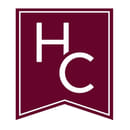Everyone knows that it’s not easy to get a great resume. We look through templates and ask our friends to look over them, but it really takes some time to cultivate a resume that will get your foot in the door of any upstanding company. Hopefully after reading this you’ll have some idea of what you want your resume to look like!
Before we get started, there are a few things you will definitely need on your resume. The things are education, work experience, campus involvement, volunteering, and honors/awards. In some cases, an internship or employer will ask that you provide a cover letter. Each topic of an entry is bolded, such as education. Any location should be italicized, as well as have the city and the state. For any entry that can be dated, the dates should have the format of month and year until month and year.
The first part of building up your resume is wording it correctly. Employers want to hire people that sound competent. For example, if your only job before was a cook in a fast food restaurant, you don’t have to just put “cook”. You should try and make your position seem as critical to that restaurant as a manager or a shift leader. You could say something like “culinary associate” or try to highlight the specifics of the job, such as “meal prep line cook”. This can go for any kind of position that you’ve worked in.
Another part of resume building is knowing what and what not to add. Let’s start with what not to add. You never want to include any kind of club or group from high school. Once you get to college, employers don’t want to waste time looking at the things you’ve done in college. Jobs that you’ve had in high school are different, because they can tell an employer about how you’ve managed to balance things in your life, even at a young age.
Another thing that you don’t want to do is make the resume hard to read. An employer wants a resume that’s short and sweet. This means no colors and no weird fonts. Italicizing and bolding the font is okay to be used in headers or different sections. Employers also like to see a resume that is about a page long. Shorter than that is okay, but longer tends to be a little tedious for the employer to read.
On the opposite side of the spectrum we encounter the things necessary for a resume, with the first being volunteerism. Volunteering looks very good on a resume, and it’s not only helping you. There are many programs at college campuses that emphasize volunteering, and even some local organizations that take in any kind of volunteer with no experience necessary. If you like animals, volunteer at a pet shelter!
Lastly, any awards, scholarships or honors that you have received should be placed in this section. If you have a long list, you may want to pick the best of the awards that would resonate with the company that you are aiming for. These are a good way for the employer to understand what kind of person you are and how hard you go on the things you’re passionate about.
Employers usually spend no more than 1 minute looking at a resume, so if you feel that your resume isn’t up to par, it’s okay! It’s always professional to provide a resume, even if you have no experience in the field that you’re trying to get in to. So, get to buffing up that resume and send it out there, Collegiettes!



